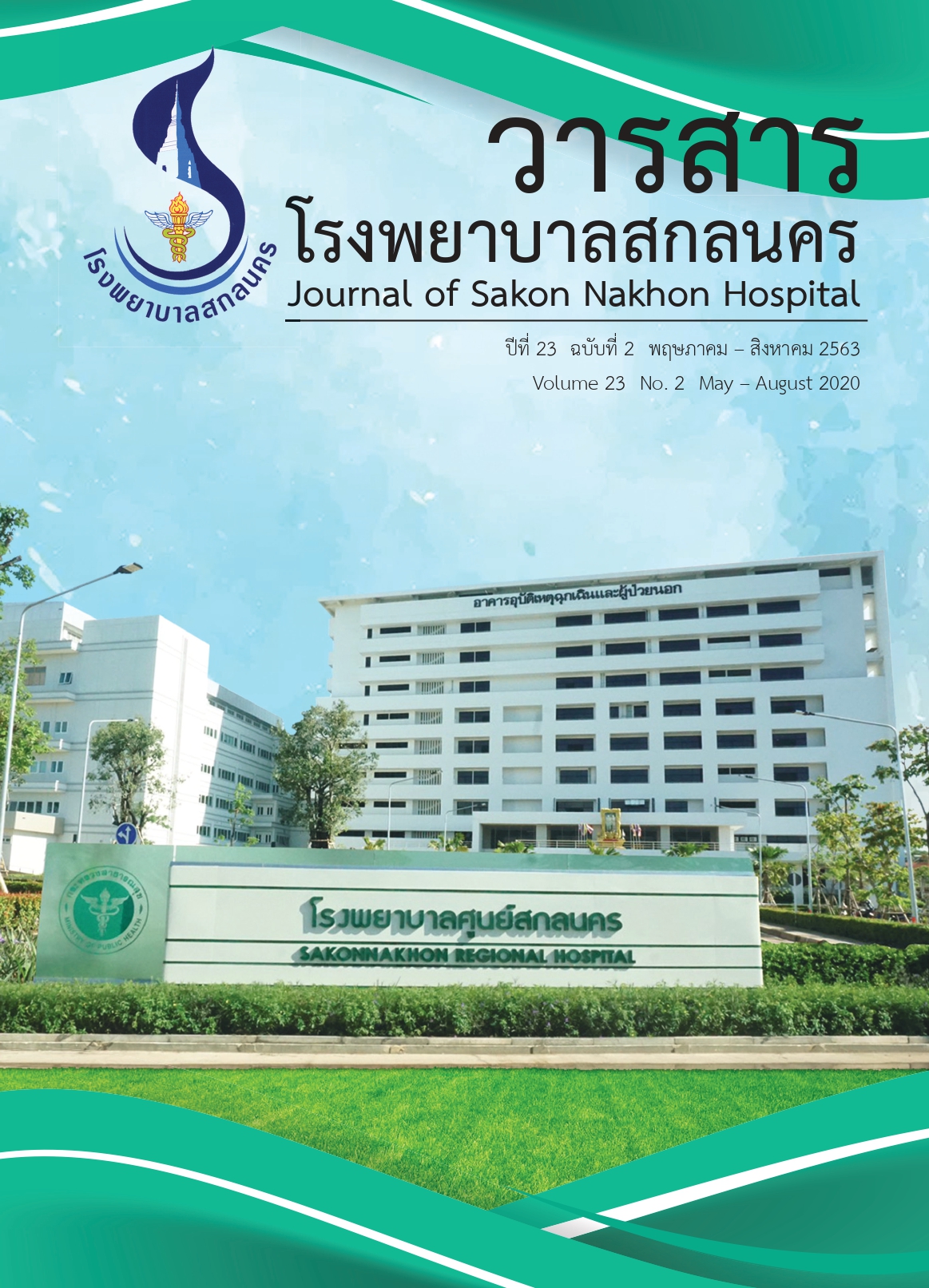การพัฒนาเครือข่ายปากสวยโมเดลต่อการดูแลผู้ป่วยวัณโรค
บทคัดย่อ
การวิจัยเชิงปฏิบัติการแบบมีส่วนร่วม (Participatory Action Research: PAR) วัตถุประสงค์เพื่อพัฒนา เครือข่ายปากสวยโมเดลต่อการดูแลผู้ป่วยวัณโรค กลุ่มตัวอย่างมาจากการสุ่มแบบง่ายจำนวน 64 คน คือผู้ที่เคยป่วย ผู้สัมผัสโรค ผู้ใกล้ชิด กลุ่มเสี่ยง แกนนำชุมชน และเจ้าหน้าที่โรงพยาบาลส่งเสริมสุขภาพตำบล อ.โพนพิสัยจ.หนองคาย การพัฒนาเครือข่ายปากสวยโมเดล (PAKSUAI model network) 7 ด้าน คือ P: การวิเคราะห์สถานการณ์ วางแผน A: การปรับทัศนคติที่ดี K: พัฒนาความรู้ ทักษะการดูแลผู้ป่วยวัณโรค S: เสริมสร้างพลังการทำงาน U: กำหนดบทบาทหน้าที่และความร่วมมือ A: ติดตามการปฏิบัติงานและ I: สรุปผลการดำเนินงานเครื่องมือที่ใช้ในการวิจัยคือ แบบสอบถามความรู้ความเข้าใจเกี่ยวกับโรค แบบสอบถามความคิดเห็นเกี่ยวกับการดำเนินงานพัฒนาเครือข่ายฯ ที่ผ่านการตรวจสอบความตรงเชิงเนื้อหา และค่าความเที่ยง โดยใช้สัมประสิทธิ์แอลฟาครอนบาร์ค = 0.89
ผลการวิจัย พบว่า ค่าคะแนนเฉลี่ยความรู้และบทบาทเครือข่ายปากสวยโมเดลก่อนและหลังดำเนินการแตกต่างกันอย่างมีนัยสำคัญทางสถิติ (p < 0.001) ความคิดเห็นการพัฒนาเครือข่ายต่อการดูแลผู้ป่วยวัณโรครายด้านที่มีค่าเฉลี่ยสูงสุดคือ ด้านการมีส่วนร่วม (X ̅ = 4.71, S.D. = 0.37) ค่าเฉลี่ยต่ำสุดคือด้านการมีเอกภาพ และด้านการสรุปทบทวน รายงานผลงาน (X ̅ = 4.38, S.D. = 0.27; X ̅ = 4.38, S.D. = 0.28) จากผลการวิจัย ควรให้ผู้นำชุมชนและเครือข่ายมีบทบาทในการขับเคลื่อนการดำเนินงานเครือข่ายปากสวยโมเดลอย่างต่อเนื่อง เพื่อให้เกิดความยั่งยืน
คำสำคัญ: เครือข่ายปากสวยโมเดล การดูแลผู้ป่วยวัณโรค





